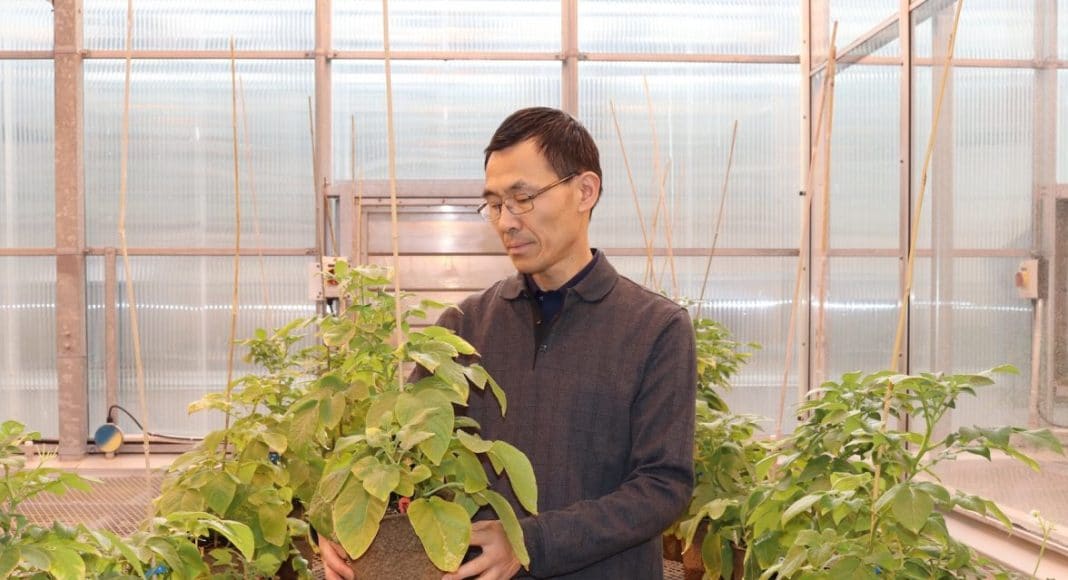Agriculture and Agri-Food Canada (AAFC) researchers in Fredericton are exploring environmentally friendly solutions to manage Potato Early Dying complex (PED), a disease that is limiting yields in many potato fields in Eastern Canada.
PED is a disease complex caused by a combination of a fungal disease (Verticillium wilt) and root-lesion nematodes.
With few available treatments, a process called biofumigation is being used by some growers to manage PED. The process involves tilling mustard plants into the soil at a specific stage of growth with enough heat and moisture in the ground to induce a chemical breakdown of the plant material.

“As the mustard decomposes, it releases a chemical that reduces Verticillium wilt pathogens without adverse effects on the environment,” explains Dr. Dahu Chen, AAFC plant pathologist at the Fredericton Research and Development Centre.
As a side-effect, mustard biofumigation also delivers green compost into the soil, improving soil health. There is some evidence that the severity of PED symptoms is reduced in healthy soils.
“The disease has been around for a long time, but it is now identified to be a major factor limiting tuber yield in New Brunswick,” says Chen, who is studying the problem with colleague, AAFC researcher Dr. Bernie Zebarth.
“The pathogen can survive in the soil for a long time, even through the harshest winter conditions of Eastern Canada,” explains Chen.
Chen and Zebarth are now working with industry partners, including Potatoes New Brunswick and McCain Foods Canada, to determine the effectiveness of mustard biofumigation through trials in commercial fields.
In addition, crop rotations that reduce the severity of PED symptoms are being examined in New Brunswick and Prince Edward Island by Potatoes New Brunswick, McCain Foods Canada, the PEI Potato Board, the New Brunswick Department of Agriculture, Aquaculture and Fisheries, and the PEI Department of Agriculture.











